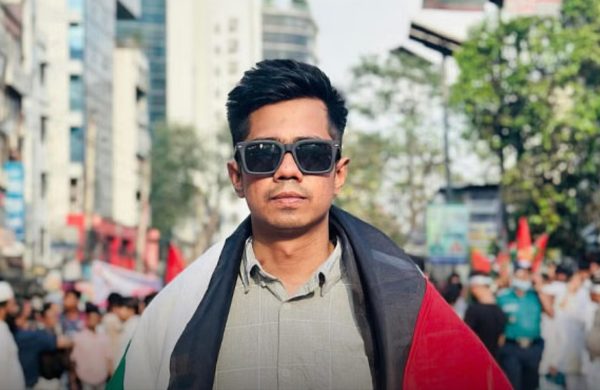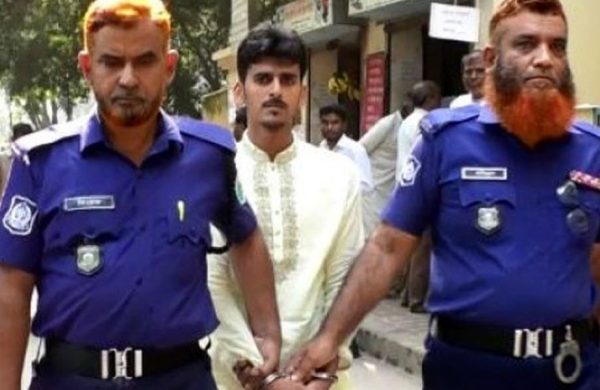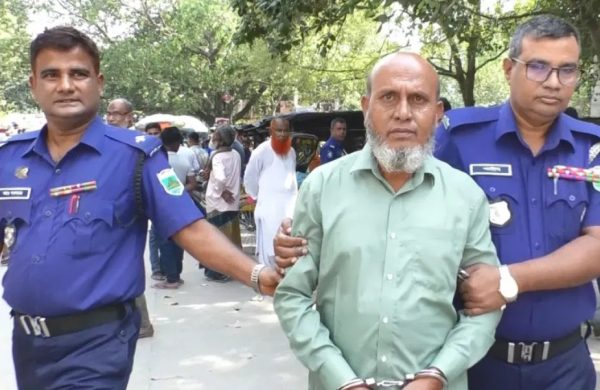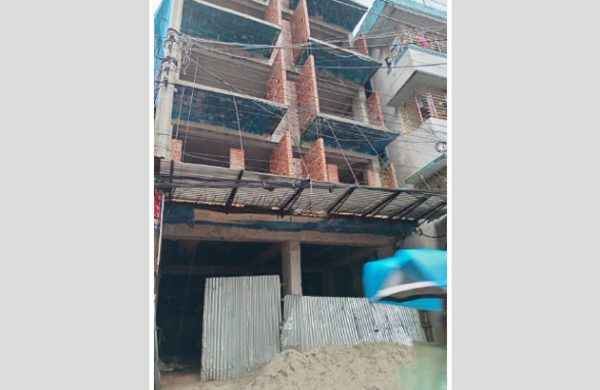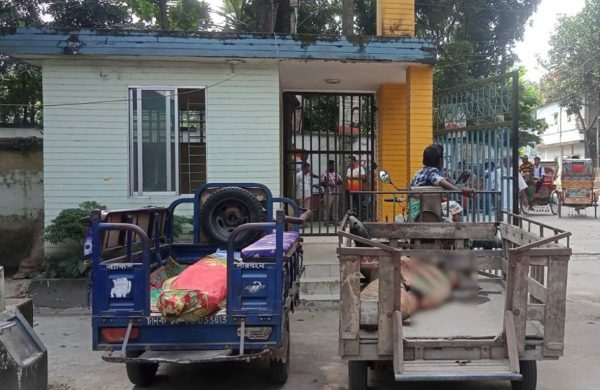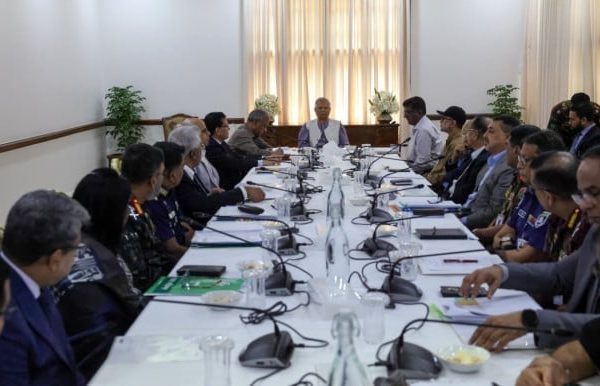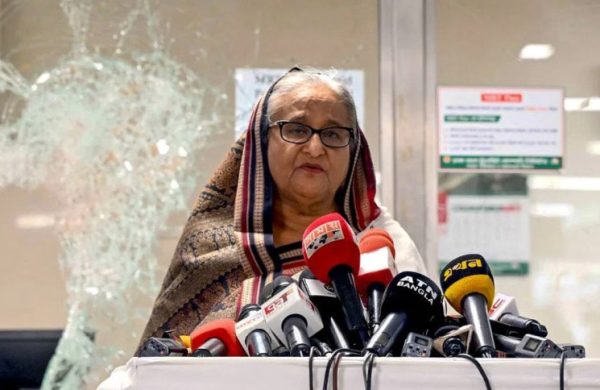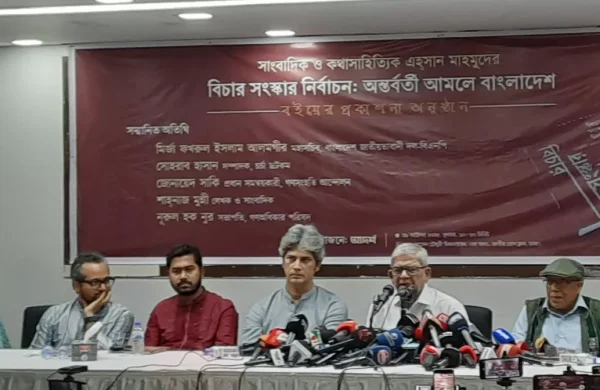8th anniversary of Holey Artisan attack: Cornered militant outfits still active online
- Update Time : Monday, July 1, 2024
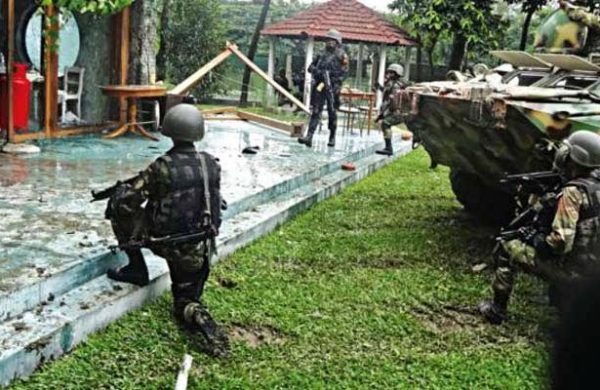
- Groups recruit members secretly under various names
- 3 As-Shahadat members arrested in Cox’s Bazar recently
TDS Desk:
Despite being crippled by law enforcement, militant outfits continue to operate online, posing a persistent threat, eight years after a gruesome attack on Holey Artisan Bakery in Dhaka’s upscale Gulshan area.
Monday marks the eighth anniversary of the horrific militant attack in the diplomatic zone of Gulshan. Following that dreadful attack, law enforcement’s multifaceted efforts have left the participating New JMB and other militant organizations cornered.
Although these groups are unable to carry out their organizational activities in full force, they remain active online.
According to sources familiar with the matter, these militant organizations are secretly recruiting members under various names online. One of them, Jama’atul Ansar Fil Hindal Sharqiya started its activities a few years ago. Recently, three members of a militant outfit named As-Shahadat, which operates under the ideology of the banned militant group Ansar al-Islam, were arrested by RAB in Cox’s Bazar.
Officials engaged in combating militancy say militants are also trying to organize themselves using different strategies, keeping in mind the tactics of law enforcement agencies, with some militants even continuing their organizational activities from prison.
WHAT HAPPENED
The gruesome militant attack at Holey Artisan Bakery on July 1, 2016 left 22 people dead, including local and foreign nationals and two police officers. The deceased included nine Italians, seven Japanese, one Indian and three Bangladeshi citizens.
Later, with the assistance of RAB and police, five militants involved in the attack were killed in a commando operation led by the army.
Additionally, a chef and another restaurant employee later died while receiving treatment.
After the trial for this attack, on November 27, 2019, the Anti-Terrorism Special Tribunal in Dhaka sentenced seven people to death.
STATE OF NEW JMB, OTHER MILITANT GROUPS
The militants involved in the Holey Artisan Bakery attack claimed to be members of the international militant outfit Islamic State (IS). However, authorities dismissed their claims, identifying them as New JMB (Jamaat-ul-Mujahideen Bangladesh) members.
Following the attack, law enforcement agencies launched extensive operations, with nearly all top leaders of New JMB arrested one by one and several top militants killed in various operations.
According to officers of the law, New JMB is completely cornered and their organizational activities are currently almost nonexistent. A young man named Abu Abbas Al Bangali, based abroad, is attempting to continue New JMB’s activities online, they say.
One official said New JMB in Bangladesh had operated under IS ideology, adding that after the Islamic State was eradicated in Iraq and Syria, New JMB members in the country became organizationally weak. “Now they are trying to recruit members online under various names.”
Mohammad Asaduzzaman, head of the Counter-Terrorism and Transnational Crime Unit (CTTC) of the Dhaka Metropolitan Police, said that the organizational base of the militants has become very weak. They are being monitored everywhere, including in cyberspace. The militants no longer have the strength to carry out any kind of attack.
Md Asaduzzaman, chief of the Counter Terrorism and Transnational Crime (CTTC) unit of the Dhaka Metropolitan Police, said the organizational base of the militants had become feeble. “They are being monitored everywhere, including in cyberspace. Militants no longer have the strength to carry out any kind of attack.”
Officials concerned say JMB and Harkat-ul-Jihad-al Islami Bangladesh (Huji-B), like New JMB, are currently organizationally weak. A JMB top leader, Salauddin Salehin, has been operating organizational activities while on the run for nearly ten years. Recently, this militant leader created a new platform named As-Shahadat for member recruitment, according to law enforcement.
“Since the heinous Holey Artisan attack, RAB and other agencies have done a lot of work. Our capabilities have also increased. We have brought many militants to justice and can say that militants no longer have the capacity to carry out coordinated attacks or sabotage,” said Arafat Islam, director of RAB’s Legal and Media Wing.
“However, militants are now trying to organize under different names. They are attempting to recruit workers and conduct invitation activities under pseudonyms. We are regularly monitoring everything. Several members of an organization named As-Shahadat were arrested recently,” he added.
CONCERNS ABOUT ANSAR AL-ISLAM
Despite law enforcement’s claims that militant organizations have been driven into a corner, concerns remain about the banned militant outfit Ansar al-Islam. Previously known as Ansarullah Bangla Team, Ansar al-Islam came into the spotlight in 2013 through the targeted killing of bloggers, writers and publishers.
Sources say most members of this organization are skilled in information technology. Additionally, due to the “cutout” method of conducting organizational activities, many top leaders of this organization remain elusive. Even two militants snatched from the premises of a Dhaka court premises in broad daylight in late 2022 have not been recaptured.
Officials engaged in counter-terrorism say Jasimuddin Rahmani was once the spiritual leader of Ansar al-Islam, and after his arrest a madrasa teacher from Narsingdi named Maulana Abdul Gafur took over.
Additionally, Major Syed Ziaul Haque, dismissed from the army, serves as the military commander of this outfit. Despite multiple attempts by law enforcement to arrest Ziaul, he has remained elusive for many years.
Ziaul is highly educated and skilled in information technology, officials say. He directs the organization’s members in such a way that law enforcement cannot catch them. Members of Ansar al-Islam, led by Zia, last participated in a murder in 2017. Since then, although they have withdrawn from organizational attacks, they are secretly reorganizing, with a police officer saying they could revert to their previous form at any time.
Nur Khan Liton, advisor to the Dhaka-based Human Rights Support Society, said: “The activities of our law enforcement agencies after the Holy Artisan attack have been highly praised. However, unless a democratic atmosphere, accountability and transparency are ensured in the country, there remains a risk of such attacks reoccurring at any time.”
This human rights activist, who has worked on militancy for a long time, added that the prison personnel where the militants were held after arrest lacked proper training in this matter. “There is [also] a complete lack of efforts to reintegrate them into society. The kind of surveillance and management needed in prisons is not seen. It is often reported that militants are active even from prison. If this continues, it will not be possible to control militancy.”





